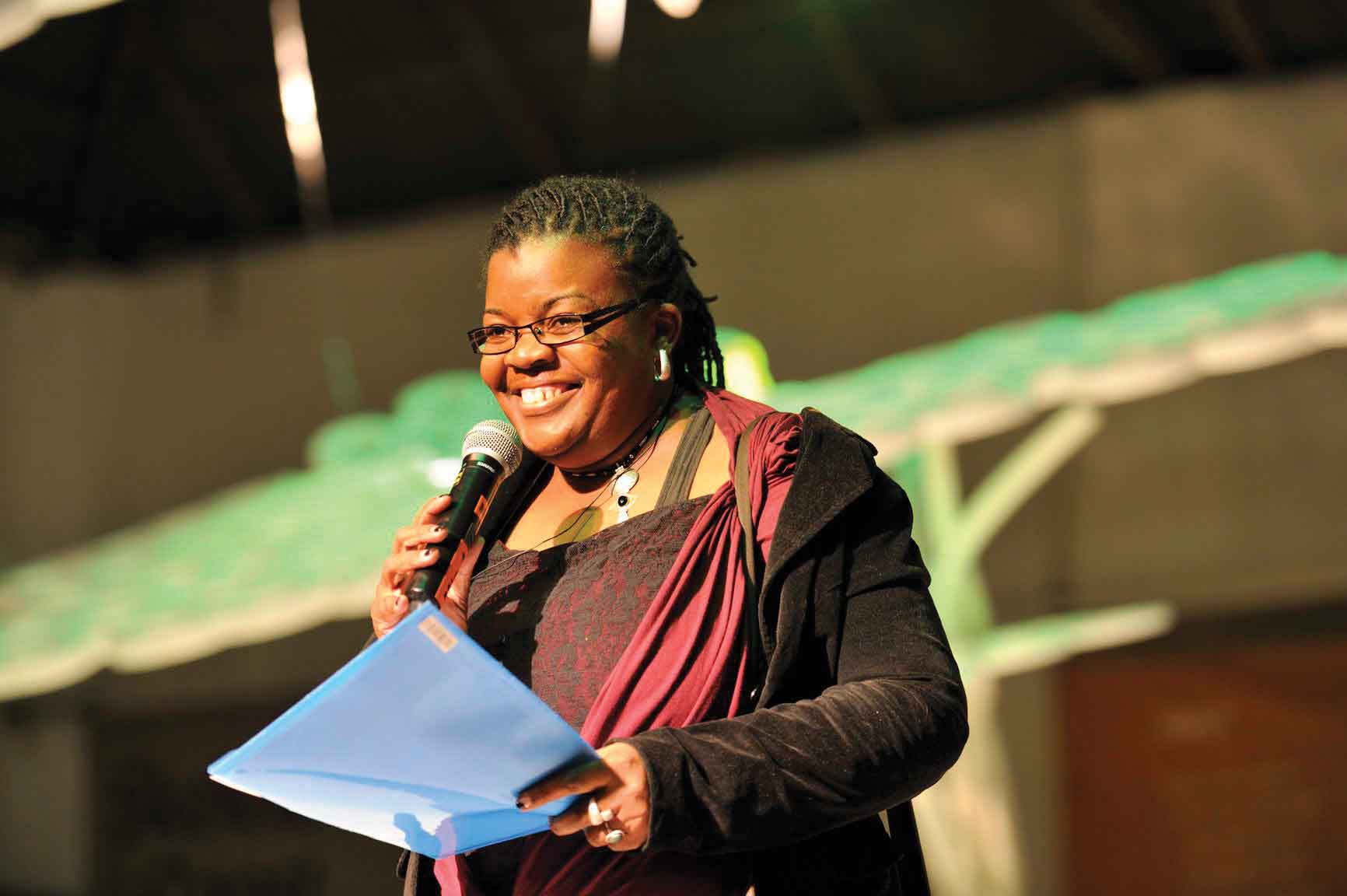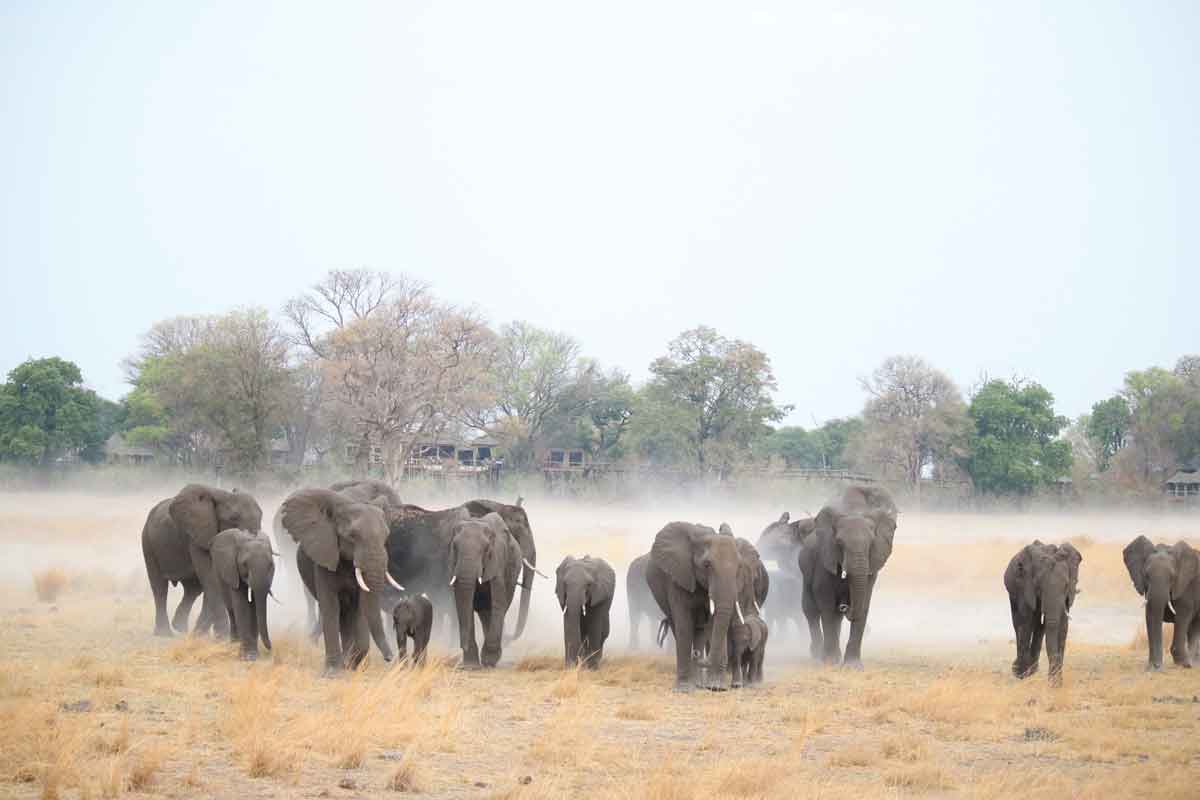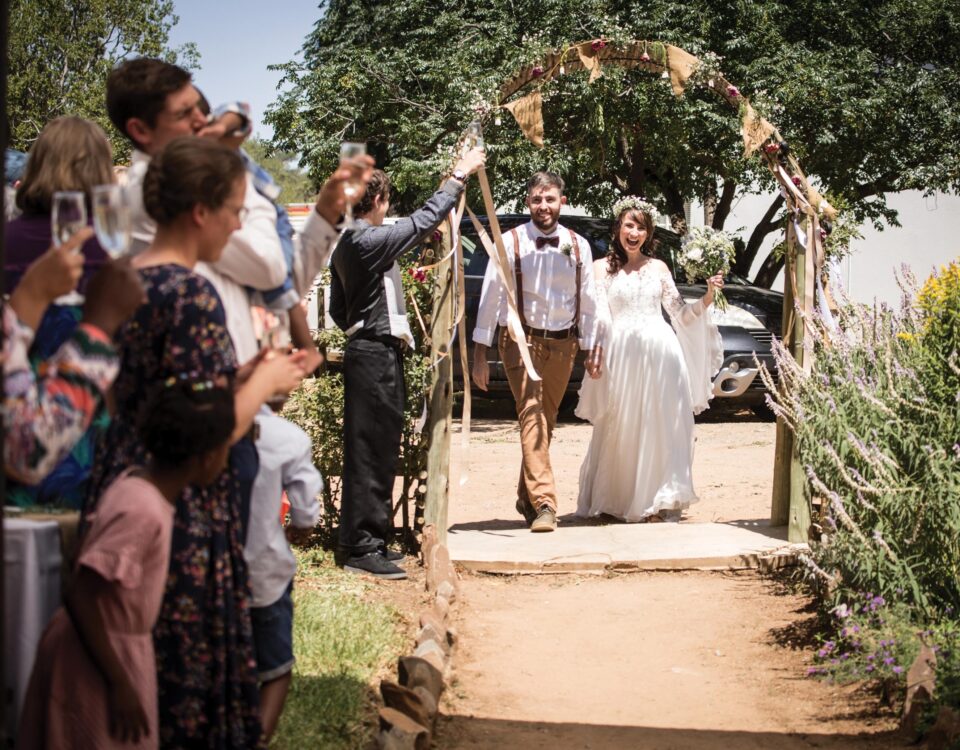
A Champion of Communal Conservancies
April 24, 2019
The Sijwa Project
April 24, 2019Text and Photographs by Nina van Schalkwyk
To the south of Windhoek, as the central plateau falls away in warm reds and cool purples to the flat desert landscape that stretches out in front of it all the way to the sand dunes of Sossusvlei, the road becomes lonely. Settlements are scattered infrequently along the way. Most inhabitants of this inhospitable land remain close to the farmsteads hidden far off the roads, lending an air of desolation and extraterrestrial quality. You might not encounter a living soul for many kilometres. If you do, it’s likely to be a herd of cattle, or goats, and a herdsman or shepherd boy nearby. It could start to get to you, this lack of human contact.
And then you notice them. The little red flags.
Placed at regular intervals along the side of the gravel road, flapping in the wind as you drive past, the scarlet triangles herald something to come in the distance. You wonder who in their right mind had planted them in the hard ground. Your attention is stimulated. You look around. And sure enough, there it is. A little building next to the road ahead. A sign outside that reads Mele, a roadside stall, or padstalletjie.
Mele is an acronym for Make Eat Love Enjoy, the made-with-love product of Sonia Rabie’s creative passion. Sonia mans the shop on the day we stop there, and happily shows us around her little establishment. There’s much to see.
With her kids out of school, there was no room for Empty Nest Syndrome. Sonia immediately decided to do something she always wanted to do, which was to set up her own roadside stall. She had the products to fill its shelves and that, after all, is the hardest part.
Good farmers have produce, whether it’s the jars of jams from the previous season’s fruit, freshly-baked bread, homemade pickled vegetables and preserves, cured meats or more, and a walk around Mele is a showcase of a farmer’s handiwork. Every aspect of a Namibian farming life has been turned into a product for sale to visitors. There is the delicious frozen meat of lamb (free-range and organic, too, I might add) in the gas freezer. Kaaswors, sossatiewors, boerewors. The bobotie that only needs to be heated up. The just-add-water beer bread (goodness knows how that magic works!). The make-it-yourself venison pie, a Namibian classic. Rusks of every flavour, cookies, sweets, coffee and tea. All of it mostly out of Sonia’s kitchen at the farmhouse.
You’d think it would get quite lonely out here, on the edge of the desert, next to a gravel road with few vehicles passing by. But when a cloud of dust announces the arrival of visitors to the farmstall, Sonia is happy to show them around. Back in the kitchen, the dishes are preliminarily set out in neat rows to accommodate large groups or a sudden influx of visitors. But when the road is empty she doesn’t mind the silence. There’s always something to do. A good book, a painting to complete, revelling in solitude and silence. I look around and realise that I wouldn’t mind this life at all. Just imagine. Meeting new people, hearing their interesting stories, basking in the stunning landscape that is the Namib-Naukluft, reading for hours on end without interruption, no cellphone reception, no electricity and the simple life to inspire creative projects. How great is that? Don’t tell me you’re not jealous.
One day a traveller from Hawaii asked what Mele meant. After Sonia explained what the name stands for, the woman told her that mele is a Hawaiian term for music or chanting. Sometime later, she wasn’t surprised when a group of Italian tourists said that mele means apples in Italian. All these meanings, she says, inevitably suit the purpose and the place. Laughter, food, music, happiness. On the edge of the desert and the edge of the world.
Sonia breeds Kaapse spikkelbokke, a type of goat that hails from the Western Cape in South Africa. Spikkelbokke were the original boerbok until they lost their popularity to their not-so-speckled counterparts. But Sonia liked these Cape bokke more, brought them to Namibia and started breeding. Their stunning pelts look almost exotic. She has a range of leather products for sale, the soft hides exquisitely hand-crafted by Zelma Kaurianga, a Herero woman in Windhoek, into tiny baby veldskoene, handbags, slippers. The soft skin seductive to the touch.
The little kitchen at the back of the stall is too small for the heavy-duty stuff. Without electricity Sonia has to improvise. For example, no fancy coffee machine for her guests. Instead, she found an ingenious way of making coffee. As we sit down outside in the cool shade of the building, she whips out what looks like tiny coffee filters attached to two small paper arms. All you do is pour hot water over the sachets and there you are: coffee prepped per cup.
FIND IT:
12.7 km from the Spreetshoogte lookout point towards Rehoboth, on your left, on the D1275
Facebook: Mele-PadstalFarmstall


